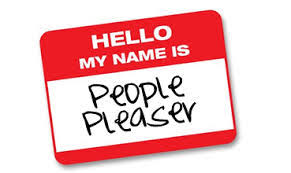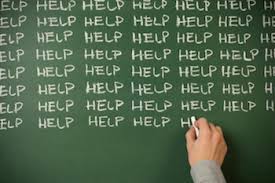
Suicide Risk Factors | How do I know if someone is suicidal?
Losing a loved one to suicide is traumatizing and heart breaking in so many ways. The shock and overwhelming grief of a sudden death, feeling guilty for not being able to save them, not having any closure or answers to the “why” they took their life, the reality of never seeing them again, and the confusing feelings of anger, shame, and sadness can all be debilitating factors for the surviving family members and friends.
Although depression, anxiety, and substance abuse issues seem to contribute to a higher risk for suicide, there is not one thing that causes suicidal thoughts or completion. Below is a list of warning signs someone may be at risk for suicide. However, preventing a person from completing suicide is not a clear process because there are several confusing factors. For example, sometimes a person seems to “have it all together” when they take their life. At times, a person may be struggling with mental or physical illness, but because they are seeking treatment, we think they will be okay. Sometimes, a person makes threats multiple times and never follows through so people begin to ignore their threats. Some people will make an attempt to commit suicide as a cry for help. People who commit suicide may talk about it or may not ever talk about it prior to doing it. And remember that many people have suicidal thoughts when they are going through a difficult time or feel depressed without wanting to actually commit suicide….so how do you know?
If you believe you know someone who may be suicidal, please share your love and care and encourage them to seek mental health therapy. If they meet some risk factors and tell you they have a plan to harm themselves, please don’t hesitate to call the police so they can get inpatient treatment. In Florida, the police can take a person to the hospital involuntarily for assessment and treatment if they are threatening to harm themselves. The fear of your loved one being angry with you and the confusion of not knowing what to do is very normal. Please take the risk factors and suicidal threats seriously. Follow your intuition because it is better to try to get help than to ignore the warning signs.
Suicide risk factors include:
- Childhood Trauma
- Family Members who have committed suicide
- Past suicide attempts
- Prolonged periods of stress like unemployment, being bullied and harassed, relationship issues, losses, rejection, financial struggles
- Serious mental or physical health diagnosis
- Chronic pain
- Drug or alcohol abuse
- Traumatic head injury
- Experiencing or Witnessing a Traumatic event
- Changes in mood, diet, sleep, behavior, habits, and interests, etc.
- Increased irritability or a very sudden sense of calm and peace
- Isolation or reaching out to people to make amends that they do not usually interact with
- Giving things away or getting very organized
Pay special attention if the above risk factors take place after a significant event. In addition, if someone is also talking about the following they could be at a higher risk for suicide:
- Killing themselves
- Feeling hopeless or helpless
- Believe they are a burden
- Feeling trapped
- Stating they don’t have any reason to live
- Express they are in unbearable pain
- Express extreme anger and talk about revenge
- Speak using language that seems to be saying goodbye
- Talks about killing themselves and has access to the means to do so such as a firearm, medication, etc.
The World Health Organization estimates that 1 million people commit suicide annually around the world. The most recent statistics show that in 2022, approximately 49,449 people took their own life in the United States and 1.7 million people attempted suicide.
National Suicide Prevention Lifeline 24/7: 800-273-8255
Call 988 to talk to someone or 911 for emergency services.
References:
- American Foundation for Suicide Prevention
- National Institute of Mental Health
- Suicide Awareness Voices of Education
Adjustment Disorder | Stress From Life Changes
50% of marriages in America are ending in divorce, 9.4% of the population in Florida are unemployed, people are diagnosed with chronic illnesses every day, and the internet makes changes every second that contribute to the ongoing flow of new information we need to be aware of in order to thrive in this global world we are living in. Every person will experience some type of change on a daily, weekly, or monthly basis throughout a lifespan. Change of any kind can add a tremendous amount of stress to our lives. Adjusting to these changes is the key to maintaining strong emotional and mental well-being. When your normal life is disrupted with change, you may start to feel sad, confused, lonely, desperate, and angry. You may act out with behaviors that are unusual for you such as fighting, or dangerous driving. You may also experience symptoms of both anxiety and depression.
An Adjustment Disorder is a clinical diagnosis resulting from the development of emotional or behavioral symptoms in response to an identifiable stressor(s) occurring within 3 months of the onset of  the stressor(s).
the stressor(s).
Below are some of the normal and expected symptoms you may be experiencing from adjusting to some kind of change taking place in your life.
Shock / Denial / Anger / Sadness
Excessive Crying / Confusion / Depression
Anxiety / Fatigue / Irritability / Loneliness
Panic Attacks / Changes in Sleep Pattern or Weight
3 Tips for Adjusting to Change:
Realize Change is Normal: Allow yourself to feel what comes naturally, express how you are feeling with someone you trust, and realize you may be experiencing the grieving process due to the loss of your old familiar “normal” – this is a completely natural process. In time, you will adjust to your new “normal” and your feelings of anxiety and depression will decrease.
Expect the Future to be Different: Understanding that change brings about a different future will help you avoid being depressed and anxious while you are adjusting to the change. For example, you may have to seek new employment or move away from family, but you may find a more rewarding and better paying job, you may develop stronger bonds with family through communicating long distance because you will put more effort into the relationships – meaning that you will still have a career and family relationships, but they will be different in some way. Remember change is not necessarily always bad or good, but is always different. How we adjust and perceive the change is the key to being healthy mentally and emotionally.
Know When to Seek Help: If your symptoms continue for several months or you begin to realize that these symptoms are interfering with your normal everyday activities and relationships or ability to function, you may need to talk with a professional counselor to help you through this time of adjustment to develop healthy coping skills and a sense of independence to go forward.
Treatment for Adjustment Disorders is usually short term and solution focused. Counseling is an excellent way to assist you and your loved ones to adjust to any changes in a healthy and productive way.
There is Hope for Healing that produces Harmony through Counseling!

Signs of Codependency in Relationships | Are you a People Pleaser?
A healthy relationship consists of two people that understand the concept of each person being valuable and important. An understanding exists that we are each responsible for our own wellbeing and that I don’t have the power to make you happy or whole. A healthy relationship has an understanding that we help each other, sacrifice for each other, are supportive of each other and we must have a strong sense of self worth without taking responsibility for the other person’s self worth or self esteem. The relationship is not based on a 50/50 concept, but on a reciprocal concept of both making the effort toward a balance in the relational dynamics with healthy boundaries.
 Codependency is when a person is dependent on the approval of others for their own sense of identity and wellbeing. A codependent person has poor boundaries, the need to control resulting in them being manipulative at times, poor self worth, and they tend to take on the role of rescuer or caretaker. Oftentimes they self identify as the “fixer”. Someone who is codependent is basically looking for external validation for their own self worth. A healthy person understands that they can’t control other people’s thoughts, beliefs, or behaviors and they must find their sense of self internally, not externally.
Codependency is when a person is dependent on the approval of others for their own sense of identity and wellbeing. A codependent person has poor boundaries, the need to control resulting in them being manipulative at times, poor self worth, and they tend to take on the role of rescuer or caretaker. Oftentimes they self identify as the “fixer”. Someone who is codependent is basically looking for external validation for their own self worth. A healthy person understands that they can’t control other people’s thoughts, beliefs, or behaviors and they must find their sense of self internally, not externally.
Codependency is an unhealthy psychological belief system (usually developed in childhood) and set of behaviors that can exist in all types of relationships including marriage, colleagues, co-workers, parent/child, relatives, and friendships. Someone struggling with codependency is usually a very responsible person. In fact, they take on responsibility that is not theirs. They tend to be very caring and nurturing to the extent of sacrificing their own needs and wants to take care of others. Sometimes they are referred to as enablers when they are in a relationship with an addict and they believe they are helping the addicted loved one by giving them money and doing things for them that they can do for themselves. These behaviors and mindset are actually harming their loved one by contributing to the factors that keep the person stuck in addiction.
Below are signs you may be struggling with Codependency:
Someone has an issue or shares a problem with you and you feel responsible for solving their problem for them.
You find yourself giving advice whether you are asked for it or not.
You have a difficult time expressing your own opinion if it differs from others.
You have been called or self identify as a “people pleaser”.
You live in the thought life of “if I do this, then he/she will do that” or “if I do this, then things will get better”. You tend to live in the hope of what will be rather than the reality of what is.
You have difficulty being alone. You make decisions based on the fear the relationship will end.
Feeling unappreciated or used.
You overextend yourself. You take on extra work on a regular basis.
Tendency to be very hard on yourself.
You struggle to make decisions without the approval of others.
You have poor boundaries. You say yes when you really want to say no out of fear of hurting someone’s feelings. You will neglect yourself and your responsibilities to be available to help others.
Spend too much time worrying.
You feel victimized in relationships, you believe people are doing things to you verses taking responsibility for your own life and decisions.
Perfectionism.
You stay in friendships, committed relationships, and jobs when you know you should leave.
If you identify with the above signs, you are vulnerable to being abused in your relationships due to your need to please others and the pattern of minimizing your own needs.
You are valuable.
You can change.
Consider talking to a person you trust about your concerns you may be identifying with codependency.
Educate yourself on boundaries so you can begin to establish and maintain healthy boundaries.
Consider working with a therapist to identify what impacted your early development and how to take the steps to break the codependent patterns while developing a healthy sense of self worth and healthy boundaries.
Consider joining a 12-step program like Codependents Anonymous (CoDA).

